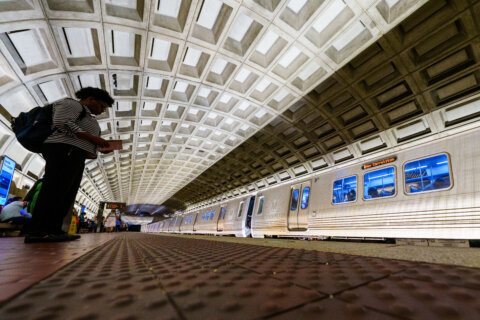Months after the U.S. Supreme Court substantially changed the legal standards prohibiting guns in public, D.C.’s attorney general says handguns should continue to banned on the Metro transit system.
Attorney General Karl Racine, in a pretrial motion in a federal suit filed by four people seeking to carry guns on the public transit system, said Metro, with rail and bus passengers, including thousands of federal workers and children riding to school, is one of the “sensitive places,” where guns can remain prohibited.
The lawsuit, which was filed shortly after the Supreme Court’s decision expanding gun rights, says while bans in schools, stadiums and restaurants are likely constitutional, the gun owners should be allowed to carry concealed weapons on Metro.
Racine disagreed, saying, “every modern mode of interstate transportation prohibits the carrying of loaded firearms on one’s person,” including commercial aircraft and interstate buses
“In dense spaces characterized by jostling and interpersonal conflict, the risk of a gun being accidentally discharged or hastily fired is tragically high — not only for the innocent bystanders who may be shot, but also for the countless other victims who may be crushed or thrown from a platform by a panicked crowd,” Racine wrote.
In addition, Racine said any incident involving a gun “could disrupt transit of transit for the hundreds of thousands relying on government-provided transportation each day.”
The plaintiffs in the lawsuit, filed in U.S. District Court for the District of Columbia, have asked the judge to issue a preliminary injunction and rule in their favor, before trial. The plaintiffs say while Metro has its own police force, many trains and buses lack police presence.
“Even if the public transportation vehicles could be considered ‘sensitive areas,’ the prohibition on licensed carry on such vehicle is a substantial infringement on licensees’ Second Amendment rights. This is especially the case as to persons of limited means lacking access to alternative transportation,” according to the plaintiffs’ complaint.
Racine argues the plaintiffs failed to meet the “imminent and irreparable harm” standard required for a judge to rule before trial.








